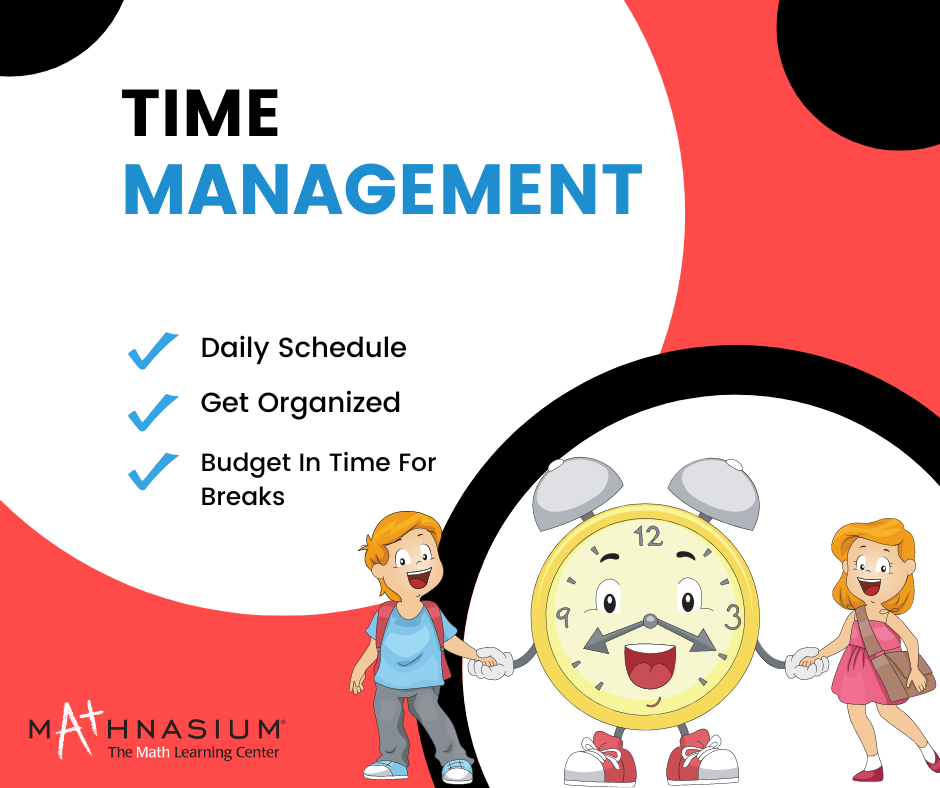Managing time can be tricky for kids. With school and extracurricular activities, there just never seems to be enough time and that is why it is so important to help children learn to manage the time that they have. Good Time-Management Skills are essential for kids to succeed in touch and the competitive working world.
Here are some tips on how to help your kids use their time more efficiently, and also help them to plan a better timetable for revision.
1) Stay organized: – Being organized can lead to better grades, fewer missed deadlines and helps kids feel in control. It saves time, effort, and unnecessary stress. Getting organized doesn’t mean being perfect but it does mean improving efficiency and it starts with planning what needs to be done.
2) Make a schedule: – To accomplish multiple hard tasks effectively, you need both a plan and a schedule. A good schedule defends against chaos. A Revision Schedule means setting aside time to review tasks you need to accomplish, classes, to review and information you need to study. Planning your self-study is the best way to secure good marks.
3) Be realistic:- It is easy to overestimate or underestimate your revision hours per day but a realistic study plan helps you to secure good marks and makes a huge difference in your life as a student. A realistic schedule should consider how much time similar study tasks have taken you in the past. Just be realistic with yourself, set goals, and aim for the target.
4) Implement effective study techniques: – Apart from making a good schedule, you also need to practice effective study techniques. Always keep your study area organized and create a quiet study environment. Write clear notes and use flashcards to study during unexpected free time. You can likely grasp difficult subjects during the day because that is when you are at your peak energy level. Think positively while you are studying and have trust in your abilities and capabilities. Believe in yourself.
5) Identify your goals: – Review your goals frequently so you can stay focused on achieving them. It is never a good idea to waste time on things you are not concerned about. See your goals, understand the obstacles, create a positive mental picture, clear your mind of self-doubt, embrace the challenge, stay on track and show the world that you can do it.
6) Have a plan for the unexpected: – Realize that things often come our way so unexpectedly that sometimes we are not prepared for them, interruptions can easily throw off a well-planned schedule. Accept the unexpected and realize that an unexpected interruption can still be inspiring and they should not stop you from getting right back into the swing of things as soon as you can. Have the best plans ready, but always be ready to adjust.
7) Plan ahead to avoid repetition: – Planning for revisions and working on them in advance can help you manage your time efficiently. TO–DO lists are a great way to avoid repetition or missing an important point or task. Proper planning can even help reduce study time. For example, if you take your time to read through chapters in a book and make sure to properly plan to highlight key topics, you will not have to reread the entire chapter for review. You can Plan to focus on the key points you highlighted.
8) Limit procrastination and distraction: – Your greatest ally in staying organized and focused is the ability to say ‘NO’ to distractions and procrastination. The best time to say NO is just before you find yourself committing to the distraction. How do you do this? A good place to start is to put your phone away for key focus time.
9) Break up your study sessions: – You don’t need distractions but you DO need breaks. Set aside time that you predetermine for a break. This is important for you to stay productive but it is very important that you schedule and limit yourself to a set amount of break time. It’s also a great idea to use that time to do something physical, like take a walk or some sort of exercise.
It is important to develop good time management skills for everything we do and especially for studying and reviewing school work. When people build good study skills and habits as children, they benefit from them for life.












